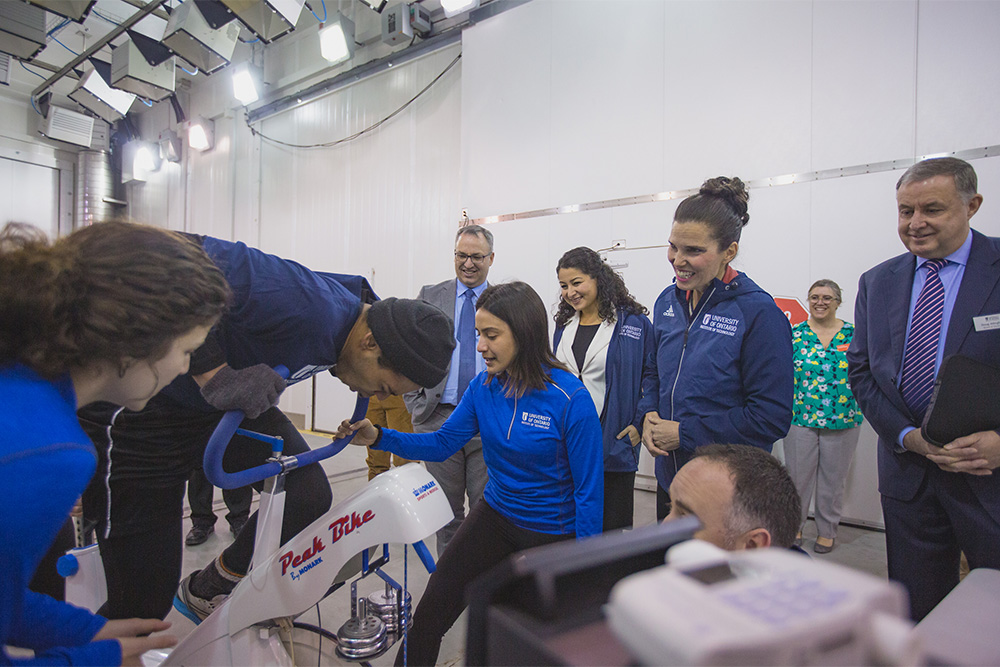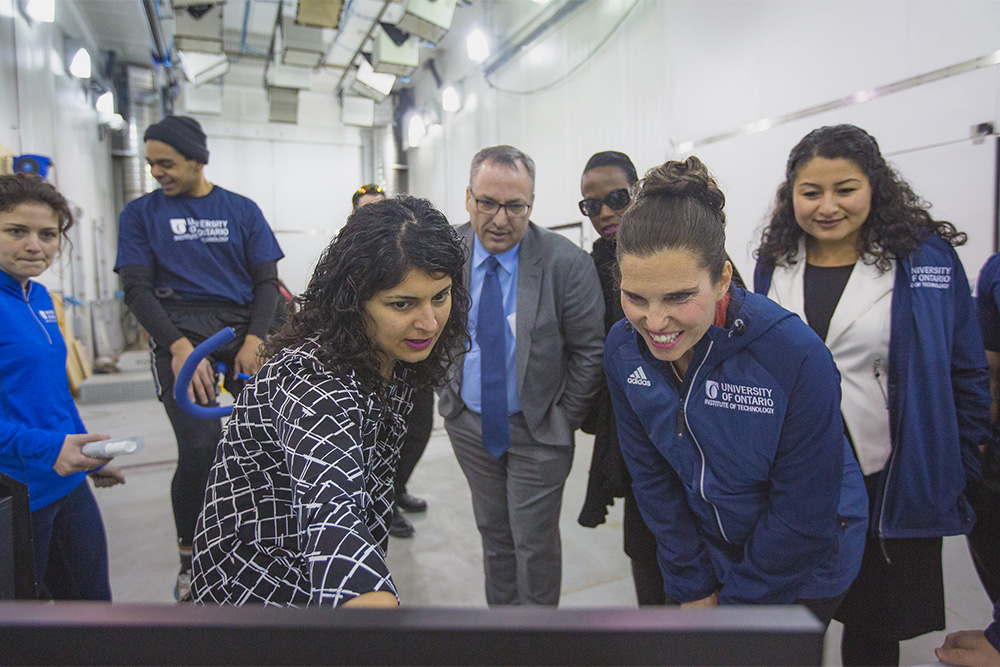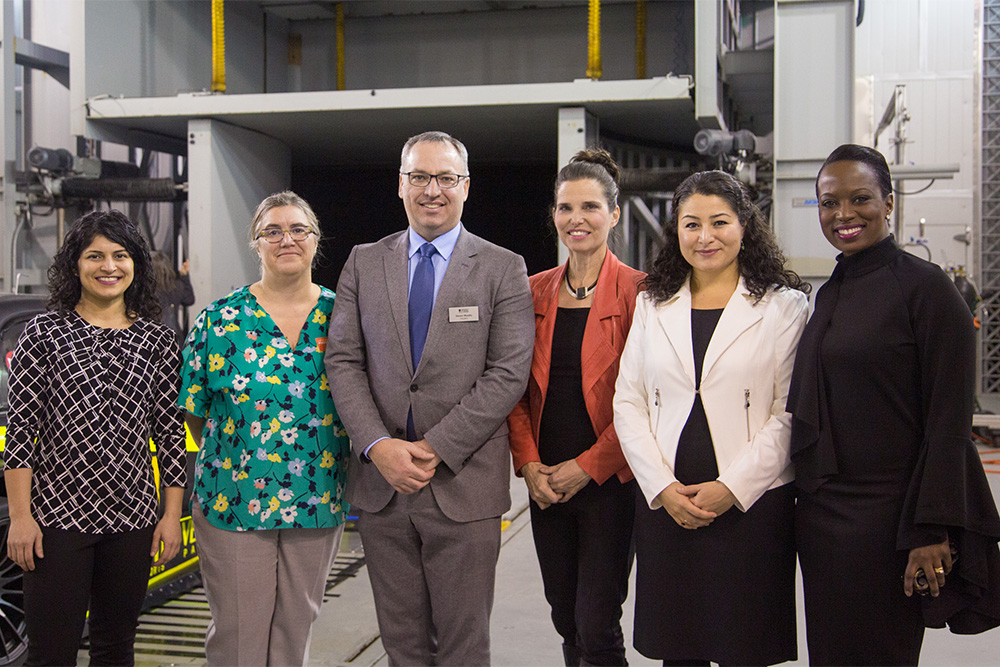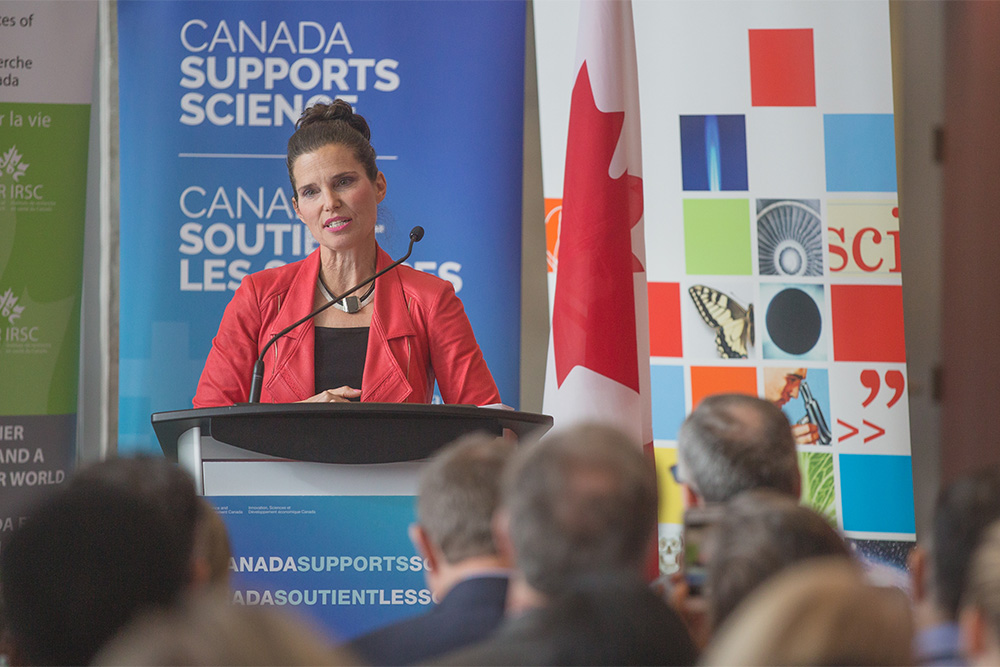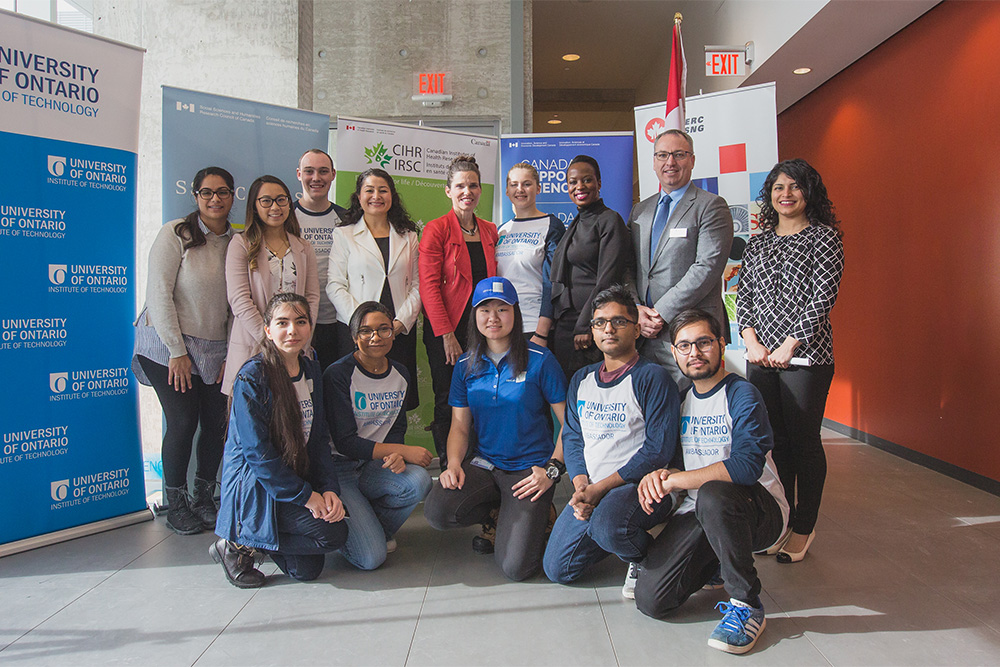Government of Canada ensures Canada’s research community is as diverse as our country
New draft charter and grants will help increase diversity and inclusion at academic institutions
February 10, 2019
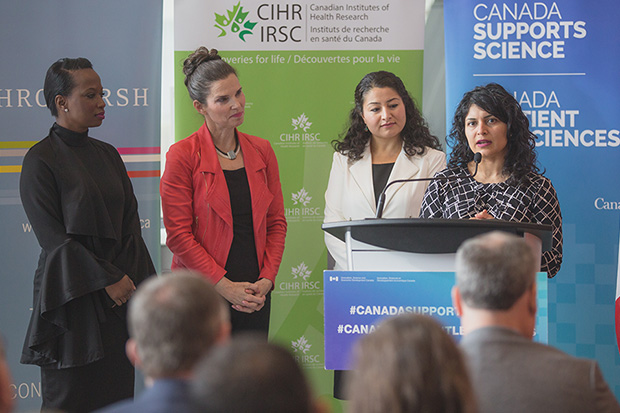
Oshawa, Ontario – Canada’s greatest potential can only be realized when all people are welcomed into the laboratory, the classroom, and the field. We all benefit from the wide range of perspectives and talent that make our research and our society better. In a competitive global economy, Canada can't afford to leave talent on the sidelines.
That is why on this International Day of Women and Girls in Science, the Honourable Kirsty Duncan, Minister of Science and Sport, unveiled the draft Made-in Canada Athena SWAN Charter, and announced the creation of a new fund to foster equity, diversity and inclusion (EDI) in research.
The draft made-in-Canada Charter reflects Canada’s diverse reality and will help further Canada’s goals of addressing EDI in our laboratories and classrooms. It is based on the internationally recognized United Kingdom Athena SWAN (Scientific Women's Academic Network). The draft charter was developed following extensive consultation with Canada’s research community, and been adapted to reflect Canada’s rich diversity. Another round of consultation will begin next week to allow underrepresented groups and academic institutions to provide feedback on the draft Charter.
Minister Duncan also announced $10 million in funding over five years for EDI Institutional Capacity-Building Grants to help post-secondary institutions across Canada embrace and increase diversity. Institutions may request up to $200,000 per year for up to two years for projects to develop and implement EDI policies, plans, and training.
The Minister also recognized this important International Day of Women and Girls in Science by launching the next phase of #ChooseScience, a national social media campaign to encourage girls and young women to enter science, technology, engineering, and mathematics (STEM) fields. The campaign and its accompanying website aim to engage young women in science, through home-based experiments, citizen science projects, and testimonials from Canadian women working in STEM.
Quotes
"Our Government is returning science and research to their rightful place while embracing equity, diversity and inclusion in the lab, the classroom and the field. Efforts to promote science are important for a forward-looking and welcoming research community that leaves no one on the sidelines. Together, these new Capacity-Building grants and the new made-in-Canada program will help us ensure Canada’s research community is as diverse as our country.”
–Kirsty Duncan, Minister of Science and Sport
"By harnessing the ideas and talents of everyone in the research community, we drive innovation, make our country more competitive, and all Canadians benefit. Today’s announcement creates more opportunities for women and underrepresented groups in research institutions across Canada, and is a powerful step toward building a vibrant, diverse and inclusive research community.”
–Maryam Monsef, Minister for Women and Gender Equality
“Fostering equity, diversity, and inclusion is an active process that reflects how we act, think, and lead at the University of Ontario Institute of Technology. These are core values that drive innovation and excellence, enhance quality and integrity, and underscore what it means to be a university. We can only reach our greatest potential when we eliminate barriers to ensure all people are welcomed into the lab, the lecture theatre, and the campus.”
–Dr. Steven Murphy, President and Vice-Chancellor, University of Ontario Institute of Technology
Quick facts
- Budget 2018 announced the Government of Canada’s plan to adapt the internationally recognized Athena SWAN initiative for Canada’s unique research landscape and to establish best practices for advancing EDI.
- Minister Duncan held roundtable discussions with Canadian higher education leaders and researchers on the opportunities and challenges of bringing the Athena SWAN program to Canada.
- For the purposes of the EDI Institutional Capacity-Building grants, underrepresented groups include women, Indigenous Peoples, members of racialized minorities, people with disabilities and LGBTQ2+ individuals.
Associated links
- Canada’s Science Vision
- 2019 made-in-Canada Athena SWAN consultations
- Equity, Diversity and Inclusion Institutional Capacity-Building Grants
Follow Canada’s three granting agencies on Twitter: @CIHR_IRSC, @NSERC_CRSNG, @SSHRC_CRSH
For Canadian science news, follow @CDNScience on social media: Twitter, Instagram, Facebook
5 > 1